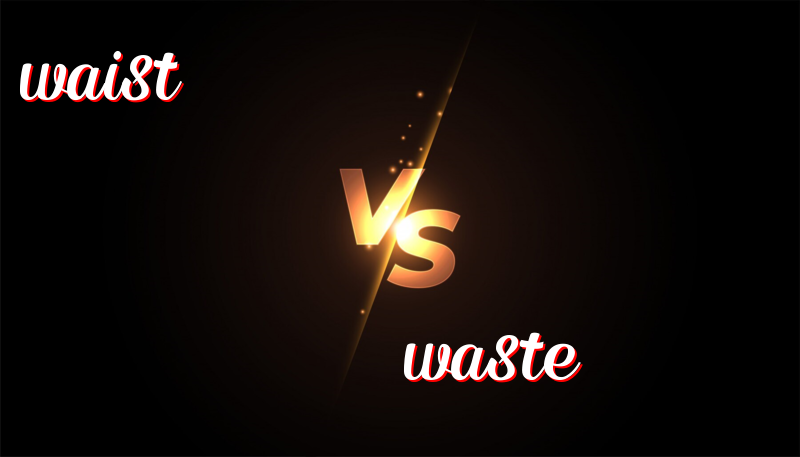英語單詞waist 與 waste的區別
December 26, 2024
腰部(Waist)與浪費(Waste)的區別
在英語學習中,”waist” 和 “waste” 這兩個字經常讓學習者感到困惑,因為它們的發音相似,但意思完全不同。本文將深入探討這兩個詞彙的歷史、用法及記憶技巧,並提供例句以便更好地理解其使用方式。
詞源歷史
Waist: “Waist” 這個詞來源於古英語 “wæst” 意指躯體的一部分。歷史上,它用來指稱人體的任何區別於胸部和臀部之間的部分。所以,”waist” 主要用於描述腰部的身體部分。
Waste: “Waste” 源於古英語 “wēste” 和古法語 “waste”, 用來描述荒蕪或未被開墾的土地。隨著時間的推移,其意義擴展到了包括浪費、滯銷和消耗。今天,這個詞用於指無謂的消耗或浪費資源。
如何使用這些字
Waist 的使用方法
- My belt is tight around my waist. 我的腰帶緊貼著我的腰。
- She wore a sash tied at her waist. 她的腰上系著一條腰帶。
- The dress has a fitted waist. 這條裙子有很合身的腰部。
- His waist size has decreased after exercising. 鍛煉後他的腰圍減小了。
- They put their arms around each other’s waist. 他們把手放在對方的腰上。
Waste 的使用方法
- Do not waste water during a drought. 在乾旱期間不要浪費水。
- It’s a waste of time to argue about it. 這只是浪費時間去爭論它。
- He wasted his money on gambling. 他把錢浪費在賭博上。
- Recycling reduces waste and saves the environment. 回收減少浪費並保護環境。
- A lot of food is wasted every day. 每天都有很多食物被浪費。
記憶技巧
一個記住這兩個詞的方法是將 “waist” 與 “身體” 聯繫起來,因為腰部是身體的一部分。而 “waste” 則與 “消耗” 和 “資源浪費” 聯繫。您可以想到“廢物(waste)”是“浪費(waste)”的結果,這樣更容易幫助您記住這兩個詞的區別。
總結
總結來說,”waist” 指的是人體的腰部,通常用於描述腰部尺寸或腰部有關的衣物。而 “waste” 則是指在不必要的事情上耗費資源或時間。理解這兩個詞的含義不僅有助於正確使用它們,也幫助避免在書寫和說話時出錯。

Leave a Reply
You must be logged in to post a comment.